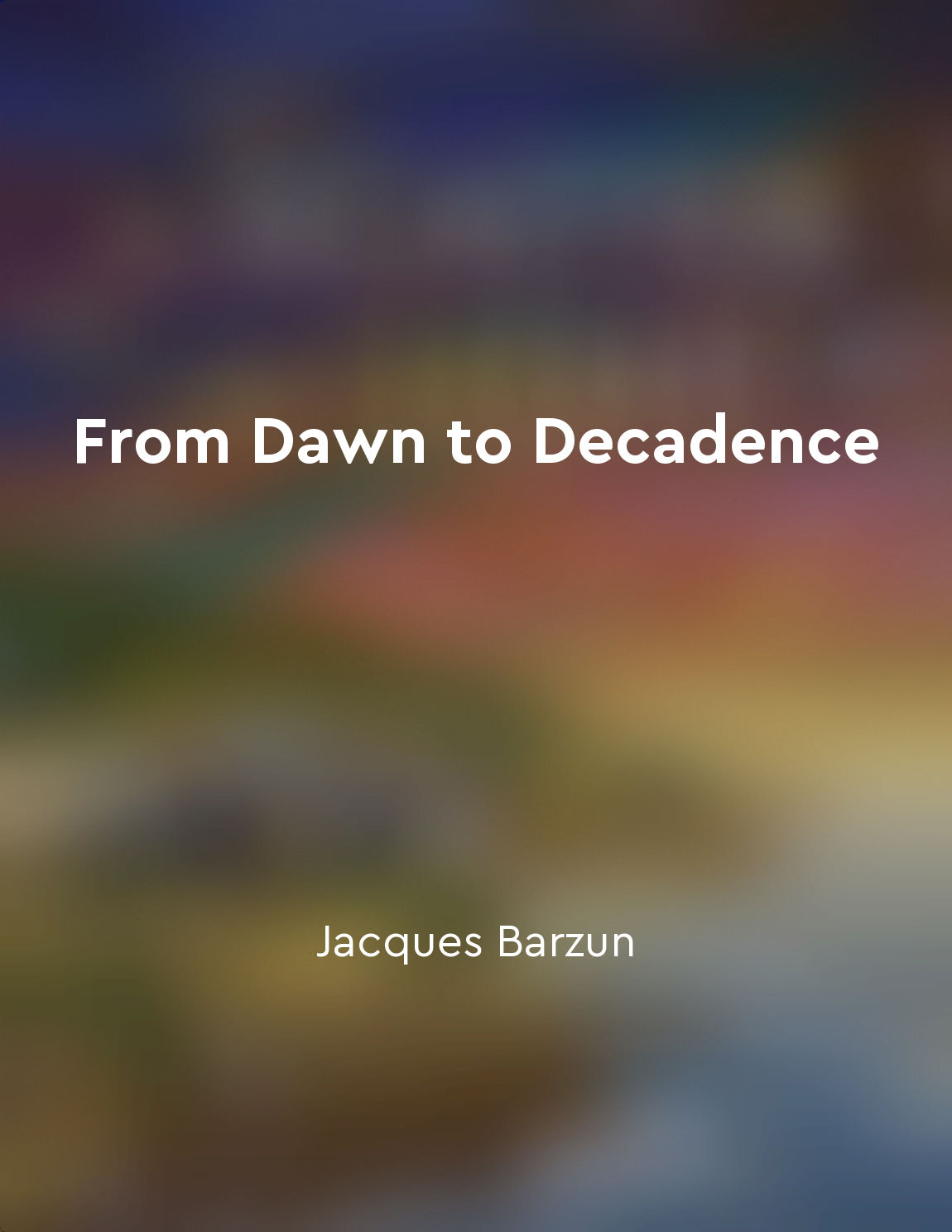Literary movements are shaped by cultural shifts from "summary" of A Short History of English Literature by Benjamin Ifor Evans
Literary movements in English literature do not occur in a vacuum; rather, they are deeply influenced by the cultural shifts of the time. These movements are a reflection of the broader societal changes that are taking place, whether they be political, social, economic, or philosophical in nature. For example, the Romantic movement of the late 18th and early 19th centuries was a direct response to the Industrial Revolution and the resulting upheaval it caused in society. Romantic poets such as William Wordsworth and Samuel Taylor Coleridge sought to reconnect with nature and the individual human experience in the face of rapid industrialization and urbanization. Similarly, the Modernist movement of the early 20th century emerged in response to the disillusionment and trauma of World War I. Writers like T. S. Eliot and Virginia Woolf experimented with new forms and styles of writing to convey the fractured and uncertain nature of the modern world. These cultural shifts not only shape the themes and subject matter of literary movements but also influence the way in which writers engage with their craft. The language, style, and structure of literary works often reflect the changing values and beliefs of the society in which they were created. In this way, literature becomes a mirror that reflects and refracts the cultural dynamics of a particular time period. By studying literary movements in context, we can gain a deeper understanding of the historical forces at play and appreciate the ways in which literature both shapes and is shaped by the world around it.Similar Posts
Explore different genres and writing styles
When a writer embarks on the journey of crafting a story, it is essential to consider the vast landscape of genres and writing ...
Discover your own voice as a writer
The idea behind finding your own voice as a writer is not about imitating someone else's style or trying to be like a famous au...

Romanticism and its impact
Romanticism, a cultural movement that emerged in the late 18th century, had a profound impact on Western society. It was a reac...
Art and environmental sustainability
Art and environmental sustainability are interconnected concepts that highlight the role of art in promoting eco-friendly pract...
Literary analysis techniques
Literary analysis techniques involve a deep exploration of a piece of literature in order to uncover its meaning and significan...
Challenges facing the art industry
The art industry faces several challenges that hinder its growth and development. One of the major challenges is the lack of fi...
Literary criticism helps us better understand works of literature
Literary criticism plays a crucial role in enhancing our understanding of works of literature. By examining and analyzing vario...
